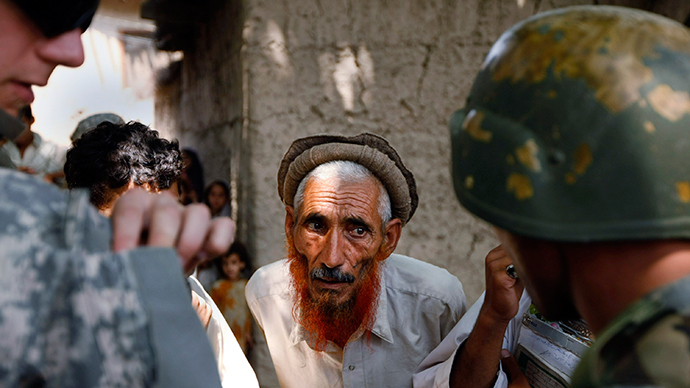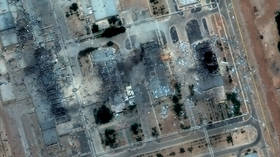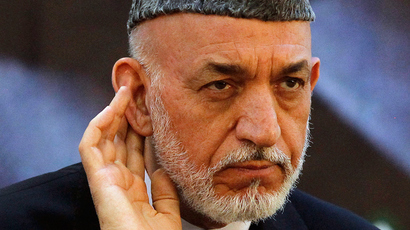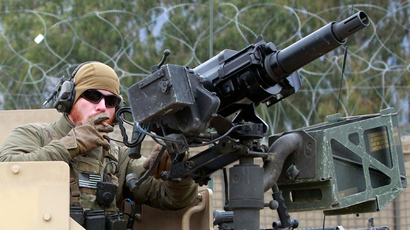British Army ‘abandoned’ Afghan war interpreters to resurgent Taliban

The British army has been accused of ‘abandoning’ Afghan interpreters, leaving them open to attacks by a resurgent Taliban, despite ‘hundreds’ of requests for help.
According to reports in The Times, more than 200 Afghan interpreters have requested amnesty from the British government, after they and their families were threatened by senior Taliban fighters.
Despite these pleas, the British government has allegedly provided only limited advice to the interpreters, recommending they change their mobile numbers and find ‘alternative’ routes to their homes.
READ MORE:Afghanistan suspends US security negotiations as Washington readies Taliban peace talks
“I feel that I have been abandoned,” one interpreter, who did not wish to reveal his name, told The Times.
The interpreter, who assisted the British mission in Helmand province, is now living in Kunar province, miles away from his wife and two children.
“The Taliban know I have worked for the coalition forces and they are looking for me. They have tried a couple of [times] either to capture me or to kill me. That is the reason I am not staying at home and I tell nobody whenever I visit my home,” he said.
Despite interpreters being a vital part of the British military mission since the operation began in 2001, hundreds of them have been refused relocation to Britain. The UK only offered safe havens in 2012, and since 2001 just 31 former interpreters have been allowed into the country.
While the government does offer amnesty to interpreters facing serious threat under its “intimidation policy”, only one person has successfully managed to convince British officials they were in danger.
“We take reports of threats and intimidation very seriously and investigate all cases thoroughly, taking action as appropriate in consultation with the locally employed civilian,” a Ministry of Defence (MoD) spokesperson said.
The MoD also confirmed the “vast majority” of cases were given “security advice” rather than stronger protection measures.
READ MORE:68 percent of Brits say Afghan war was futile – poll
Other Afghan interpreters facing intimidation have reportedly entered the UK through unofficial channels, or have applied for asylum.
Earlier this year, three former Afghan interpreters won the right to challenge the British Army in the High Court, after a judge found evidence to suggest they had been “unlawfully treated differently” compared to their counterparts in Iraq, who had received more access to welfare benefits and council homes.














